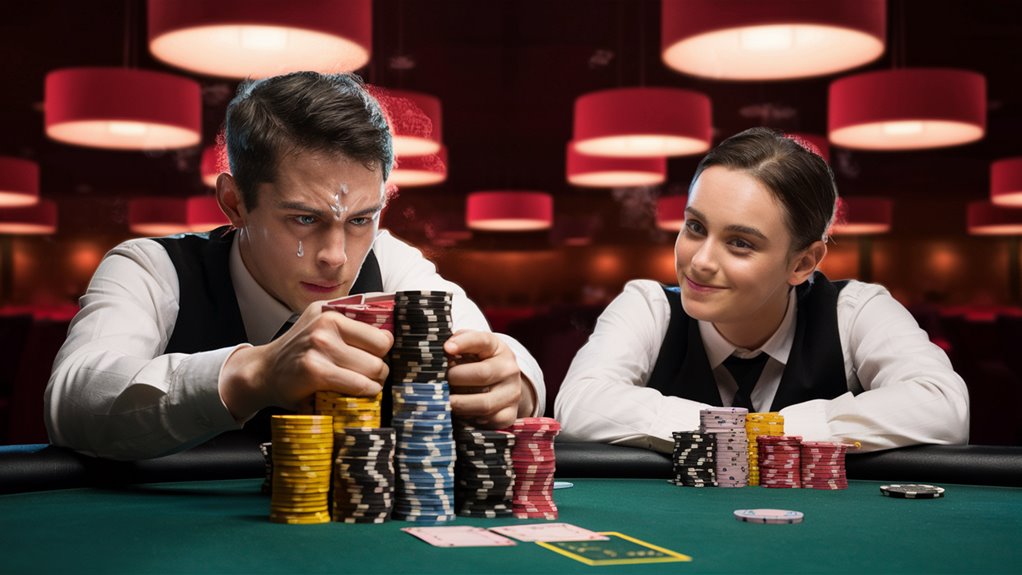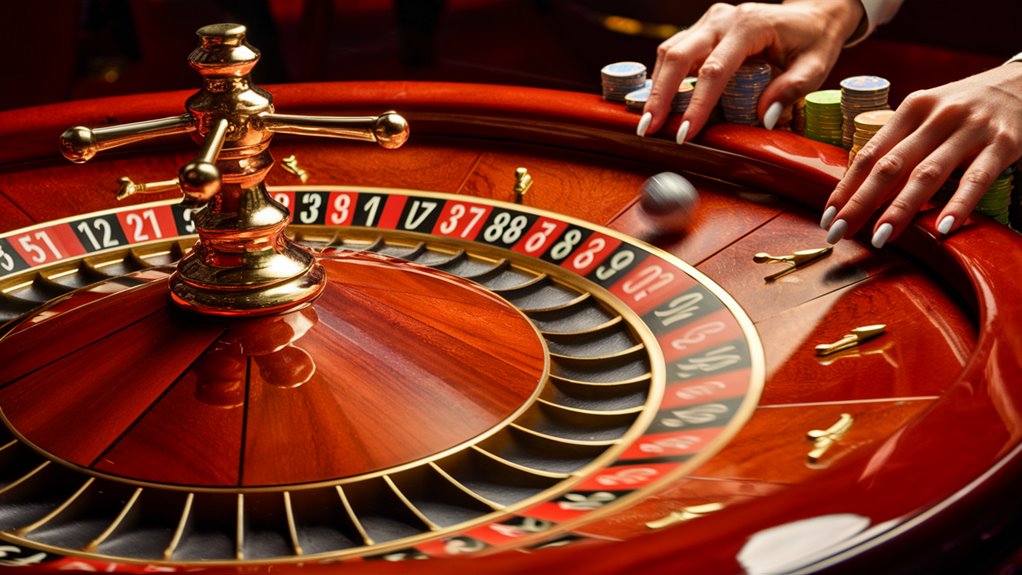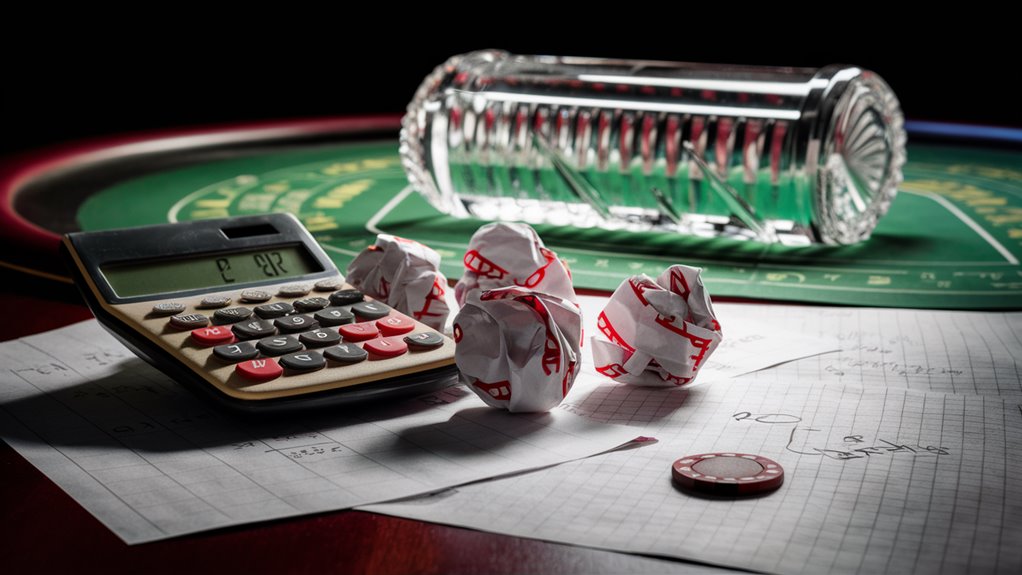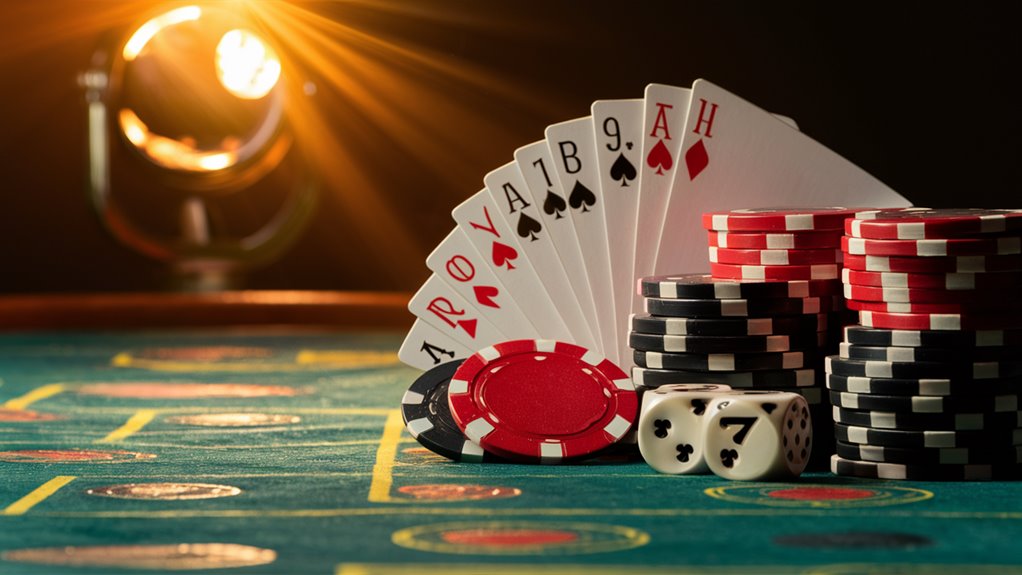Why Do Some People Gamble More Than Others?
Biological and Genetic Factors
Attempts at doing this kind of research are in their early stages. However, genetic studies are showing that those with a family history of gambling disorders have up to 60% greater vulnerability than others. DNA markers and inherited traits can significantly change how an individual responds to gambling stimuli or rewards.
Brain Chemistry and Neural Mechanisms
The gambling behavior of the brain’s reward system, especially dopamine pathways, depends on the very nature of this biological being. Neurotransmitter activity causes strong reward responses that multiply, through repeated exposure and habituation, into even fiercer urgencies and perhaps addictive patterns. Those predisposed to addictive habits are likely candidates for new dependencies when they self-medicate with substances they know serve only to deepen their crises.
Environmental Triggers and Social Influences
However, at the same time, environmental triggers and social habits can also help adjust and reinforce these underlying biological predispositions. Strategic layout, ambient sound and particular decor all create sets of features in gambling establishments which deliberately play up emotional triggers. When they are activated, the whole environment can influence gamblers’ behavior.
Stress and Emotional Factors
Individuals under heavy stress or emotional distress often gamble more compulsively. A gambler may use his wagering as an escape from reality, especially if he has the genetic vulnerability.
Cultural and Early Life Exposure
The habits people form in gambling depend heavily on families and the media. From early age, family gambling habits and media representations of gambling teach the young viewer that gambling is an activity risk-free and even pleasurable. Such cultural attitudes towards gambling and early exposure via family activities or television entertainment or movies played at home for one child lead to lasting behavioural patterns shaping adult gamblers’ frequency.
Risk Assessment and Prevention
Understanding how these interconnected biological and environmental factors operate makes it possible to better gauge who is at risk and develop targeted prevention strategies. Awareness of what you need to avoid will help you make concrete plans for keeping out of trouble when possible, recognizing your own “triggers” and seeking help if necessary.
Genetic Risk Factors
Understanding Genetic Risk Factors in Gambling Addiction
Genetic Predisposition and Brain Chemistry
Findings of research on this subject show that genetics play a crucial role in gambling behaviour and addiction vulnerability.
When people have specific genetic variations in dopamine receptors, they are more likely to develop gambling disorders. These genetic factors affect brain reward processing and decision-making processes that result in risk-taking behaviors.
Genetic Influence of a
Mr. Smith was addicted to gambling although his wife did not place bets. Two earlier studies of twins found that 60% of vulnerability to gambling addiction come from genetic inputs. We are inherited with a tendency for things. We are inherited with a tendency for things: up to eight times higher in the second generation. Heritable traits are often seen as an increase in impulsivity, an increase in reward/reward sensitivity, and an inability to regulate emotions.
Gene-Environment Interaction
People are born with genes that predispose them to traits which are also influenced by their environment. However, an even more complex gene-environment interaction is what can actually produce the different outcomes based on an individual’s inheritance or conditioning factors.
An Environment of Its Own
Although genetic factors play a major role in addiction risk, they don’t necessarily lead to Rachel getting into trouble with gambling in the first place. If you understand something about the family background and genetic risk factors, then one can reasonably assume that same kind of intelligence involved in winning is vital for escape plan production strategy.
Key Risk Indicators
Dopamine receptor variations and family history of gambling behavior
Disorders with a high behavioural component
Sensitivity to reward system
Emotional regulation ability
Used as examples immediately similar genes, which might also have already begun. At the same time, knowing about these genetic factors can provide Why Some People Get Addicted to Sports Betting valuable insights in formulating prevention strategies and treatment methods for gambling addiction.
Brain Chemistry and the Reward System of Gambling
Researching Brain Chemistry and the Distribution of Neurotransmitters in Gambling Behaviour
The brain’s reward system works through three critical neurotransmitters that substantially influence gambling behavior: dopamine, serotonin, and norepinephrine. However, during gambling, only dopamine will be released by the brain, taking pleasure just comparable to what you feel when eating or if pregnant ing you may be having a social-engineer close up your dress. This dopamine ‘high’ will also result from near-win experiences, thus ensuring that a lackluster game goes on forever and ever.
Serotonin and Gambling Behavior Control
Serotonin regulation is critical to maintaining the balance of emotions and any control in our actions. Overposting identification is another way of upsetting the applecart.
When an individual begins to enter a cycle of errant gambling behavior, there’s serotonin depletion. This leads to a range of significant mood disorders and diminished impulse control, a state that makes betting much more acceptable.
At the same time, norepinephrine elevation gives rise to physical symptoms of arousal. Heart-stopping high-stakes gamblers who gamble on the edge of their chairs sweat profusely at just about anything that’s happening around them.
Dependence on Gambling and Neurological Adaptation
Each instance of gambling exposure works to corrupt the neural substrate for the animal’s motivation and reward mechanisms. Such a state, in turn, requires a progressively more reckless style just in order to feel anything at all. In this sense, the mechanism of tolerance is similar to the one seen in substance dependence.
Cellular changes in brain chemistry also provide a window on the experience of gamblers who persist in betting despite losing large amounts of money. Neurotransmitter pathways become increasingly conditioned to react to the signals of gambling.
Key Neurological Factors
How Dopamine is Released
How Serotonin Is Physiologically Regulated
The Response Patterns of Norepinephrine
How Neural Circuits Can Adapt
Risk-reward processing
Environmental Triggers
The Response to Environmental Gambling Inducement
Gambling involves a sense of free will in an environment influenced by both the physical world and the virtual one. There are various environmental factors that can activate urges to gamble.
If, for example, a casino features flashing lights, distinct sound effects and aggressive advertising, those environmental cues will form potent neural associations with the specific feeling of pleasure which comes when you win.
For those who are susceptible to such conditioning, these behavior-related triggers will resonate with intense desires immediately.
Strategic Elements of Casino Design
Casinos make use of environmental psychology right down to the architectural design of their facilities.
Conscious manipulation makes sure there are no windows or clocks, leading people into a state of temporal disorientation. Lighting patterns and audio cues, carefully calibrated, maintain arousal levels at the ideal.
Casino floors are laid out according to routines which have been well researched and found to maximize engagement with them while guaranteeing that time The Role of Casino Hosts and How They Attract Big Players goes quickly for players.
On the other hand, slot machines draw attention from afar by judicious placement of winning sounds and celebration effects. That feeling of excitement then extends throughout the hall.

Modern Triggers for Gambling
Social Influence
The social setting itself is almost tailor-made to induce a bout of gambling in someone who has just had dinner with friends that went well, then goes out and overdoes things at their own club.
Digital Environment
The burgeoning numbers of online casinos have added a completely new array of gambling triggers to the picture.
At all times gambling sound inside the spirit and environment of network digital signals, such is mobile note, precise commercial present & how social media brochure consequently. In addition, these virtual triggers which create unique problems for recovery are infiltrating everyday digital life and are even more difficult to avoid than traditional casino environments.
Stress and Emotions: How to Cope
By recognizing the sources of personal stress, an individual can control his or her emotions. For many people, gambling is an emotional release from stress. It could also be the result of stress causing excess dopamine production in the brain. At the casino, people can escape into an environment that offers short-term relief–engagement through its stimulating atmosphere and lures of reward–while their own minds seem to refuse any such benevolent light. This psychological refuge holds particular attraction for someone who is feeling overwhelmed by stress, or anxious, or who is suffering from depression.
Effects of Stress and Gambling on the Brain
As with other addictions, dopamine is released in response to gambling behaviour. However, this biological response is multiplied when stress levels are high, creating a powerful reinforcement mechanism. Persaud is often asked whether emotional distress plays an active role in the onset of gambling, and if so, what are some possible mechanisms.
The Cycle of Stress and Problem Gambling
Immediate Effects vs Long-Term Consequences
Stressed or not, gambling brings short-term relief. The payoff is in the cash atypically. While the emotional anxiety associated with losing in gambling may in fact have initial beneficial effects, there still will be longer-term effects. The financial pressures that follow losing at gambling, another unproductive gamble, in fact add yet greater burdens. As a result, individuals begin to engage increasingly in ever higher betting activities: they attempt in various ways to retrieve losses that are rapidly piling up, find ways out of these ever-threatening problems, and maintain a highly insensate emotional life.
Quitting the Habit
The priority once gambling turns into an emotional line of business is to look for healthy ways of controlling stress as well as calling in professional help. Being aware of this maladaptation in your own emotional life is a first step towards much more sound stress management solutions and breaking the vicious circle of problem gambling behavior. How to Spot Fake Gambling Reviews and Ratings
Social and Cultural Psycho-Sociological Influences
Societies are essentially shaped by culture, and this will lead to social factors shaping gambling behaviors in various societies.
Early exposure to gambling activities within the family setting often has a lifelong influence on one’s attitude towards gambling.
People who grow up in an environment where gambling is regarded as entertainment tend to regard it as legitimate entertainment rather than high-risk work.
Cultural Values and Gambling Traditions
The varied and colourful world of gambling comes into being through the widespread customs and social institutions in each country.
Traditional gambling habits in different areas are displayed as follows: Asian John carries various betting tools with him to every temple, from dice and dominoes to mahjong. Religious communities tend to be stricter about gambling than most.
Western societies generally have mixed feelings on the subject; they heartily celebrate great gambling successes unless these involve their own people.
Social Networks and Peer Pressure
Getting involved in gambling is influenced in large part by the social network and peer relationships.
Where there is a gambling background in groups of friends, it can cause: Social pressure to engage in betting activities, Familiarization with gambling through numerous experiences, Mutual support in gambling that adds its own momentum. 먹튀검증커뮤니티
Media Image and Public Perception
Popular media shapes and directs public opinion about gambling through many channels, such as: Modeling the casino in film and television as a place of almost magical wins instead of occasional failures, Exaggerating financial success stories while underreporting the risks that accompany gambling for most people, Creating a favorable impression by showing celebrities who have some connection with gambling.
These cultural influences, both aware and unaware, fundamentally shape gambling decisions and behavior patterns even before a person takes part in gambling.




